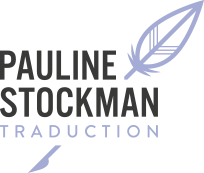
TRANSLATION
In our globalised world, where borders are becoming blurred, travel is becoming easier and English is consolidating its role as the new lingua franca, translation and interpreting have an increasingly important role to play as we strive to preserve the richness and diversity of language and avoid the pitfalls of monotony and superficiality.
While it may be relatively straightforward these days for us to understand a text written in another language, we are often happy to settle for the gist of the message, glossing over the finer details. And that’s where the translator comes in. The role of a translator is to bridge the gap between people or institutions from different cultures that struggle to understand each other perfectly, if at all. The translator is there to deliver the message in full, without distorting it in any way – although it may sometimes prove necessary to adapt it to the realities of the target culture. Translation can be a tricky balancing act.
Translation is not a skill that can be picked up overnight; it requires many years of dedication and continuous learning. In the course of their work, most translators find themselves tackling a wide variety of texts of different types and subject matter. This constant diversity enables them not only to widen their horizons and extend their general knowledge but also to sharpen their skills and acquire ever greater levels of dexterity for an exercise that is much more perilous than it may seem. While machine translation tools such as Google Translate are clearly a long way from offering the same level of quality as a human translator, equally only a qualified, experienced professional will be able to produce a result that will read as if it has been composed directly in the target language rather than having gone through the process of translation.
So don’t take any chances when it comes to the quality of your written material – send your texts to a qualified translation professional!
